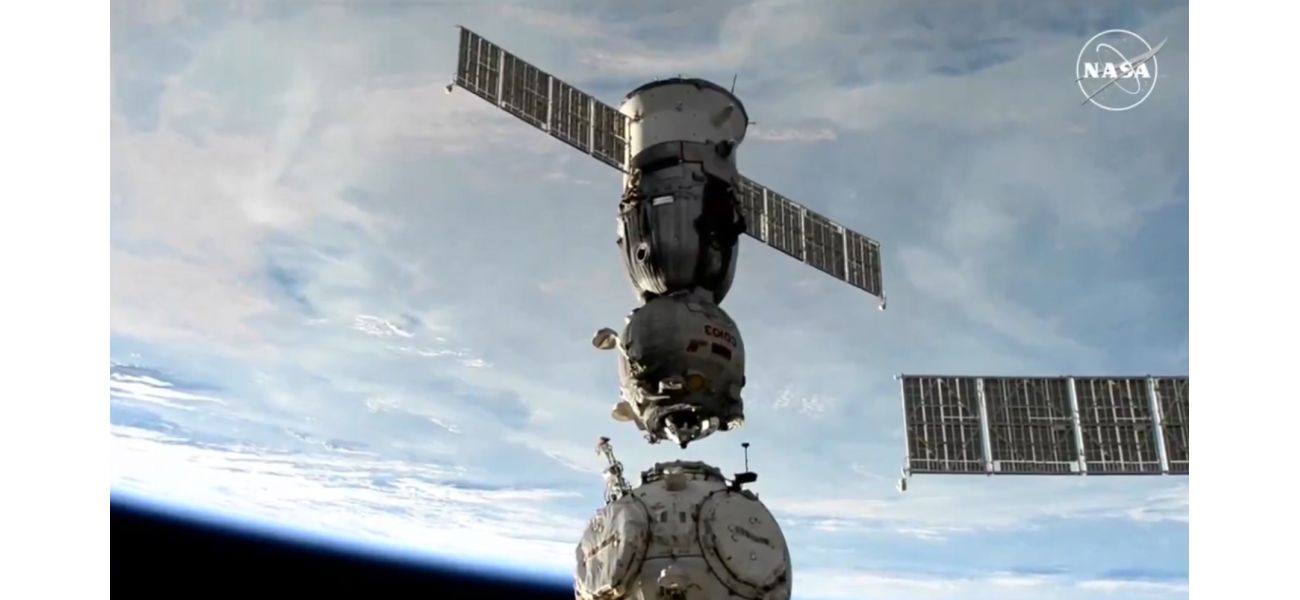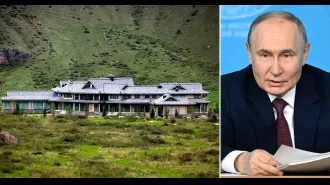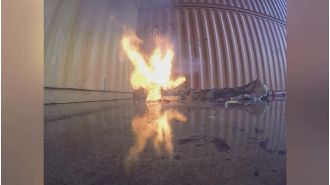Two space travelers return to Earth after spending 374 days away.
The recent space mission was the longest since Valeri Polyakov's record of 437 days in the mid 1990s.
September 24th 2024.

After an incredible 374 days in space, two Russian astronauts have finally returned to Earth. This mission, lasting longer than any other since the mid-1990s, has been a monumental achievement for both the astronauts and the space program. Yesterday at 4:59pm, the Soyuz MS-25 spacecraft made a successful landing on the steppe of Kazakhstan, assisted by parachutes. According to a statement from NASA, the landing site was located southeast of the town of Dzhezkazgan.
The two Roscosmos cosmonauts, Nikolai Chub and Oleg Kononenko, had originally launched into space in September of last year. After spending the past 374 days on the International Space Station, they were finally able to return to Earth. This was Chub's first spaceflight, while Kononenko has now completed an impressive five missions. Together, they completed a total of 5984 orbits in space during their trip.
This mission was an important one, not just because of its duration, but also because it broke a record set by Russian cosmonaut Valeri Polyakov in 1995. Polyakov spent a remarkable 437 days in space, setting the previous record for the longest continuous time spent in space. Kononenko has now surpassed even that, with a total of 1111 non-consecutive days in orbit. This is a truly incredible accomplishment.
NASA astronaut Tracy Dyson also joined Chub and Kononenko on their return to Earth. Dyson, who had spent 184 days in space, was excited to finally be back home. The three astronauts boarded a helicopter from the landing site and traveled to the recovery staging city of Karaganda in Kazakhstan. From there, Kononenko and Chub will head to a training base in Star City, Russia, while Dyson will board a NASA plane back to Houston.
This successful mission has shown the world the incredible capabilities of humans in space. It has also sparked curiosity about what the future holds for space exploration. As we continue to push the boundaries and break records, we are reminded of just how far we have come and how much more we can achieve.
The two Roscosmos cosmonauts, Nikolai Chub and Oleg Kononenko, had originally launched into space in September of last year. After spending the past 374 days on the International Space Station, they were finally able to return to Earth. This was Chub's first spaceflight, while Kononenko has now completed an impressive five missions. Together, they completed a total of 5984 orbits in space during their trip.
This mission was an important one, not just because of its duration, but also because it broke a record set by Russian cosmonaut Valeri Polyakov in 1995. Polyakov spent a remarkable 437 days in space, setting the previous record for the longest continuous time spent in space. Kononenko has now surpassed even that, with a total of 1111 non-consecutive days in orbit. This is a truly incredible accomplishment.
NASA astronaut Tracy Dyson also joined Chub and Kononenko on their return to Earth. Dyson, who had spent 184 days in space, was excited to finally be back home. The three astronauts boarded a helicopter from the landing site and traveled to the recovery staging city of Karaganda in Kazakhstan. From there, Kononenko and Chub will head to a training base in Star City, Russia, while Dyson will board a NASA plane back to Houston.
This successful mission has shown the world the incredible capabilities of humans in space. It has also sparked curiosity about what the future holds for space exploration. As we continue to push the boundaries and break records, we are reminded of just how far we have come and how much more we can achieve.
[This article has been trending online recently and has been generated with AI. Your feed is customized.]
[Generative AI is experimental.]
0
0
Submit Comment





